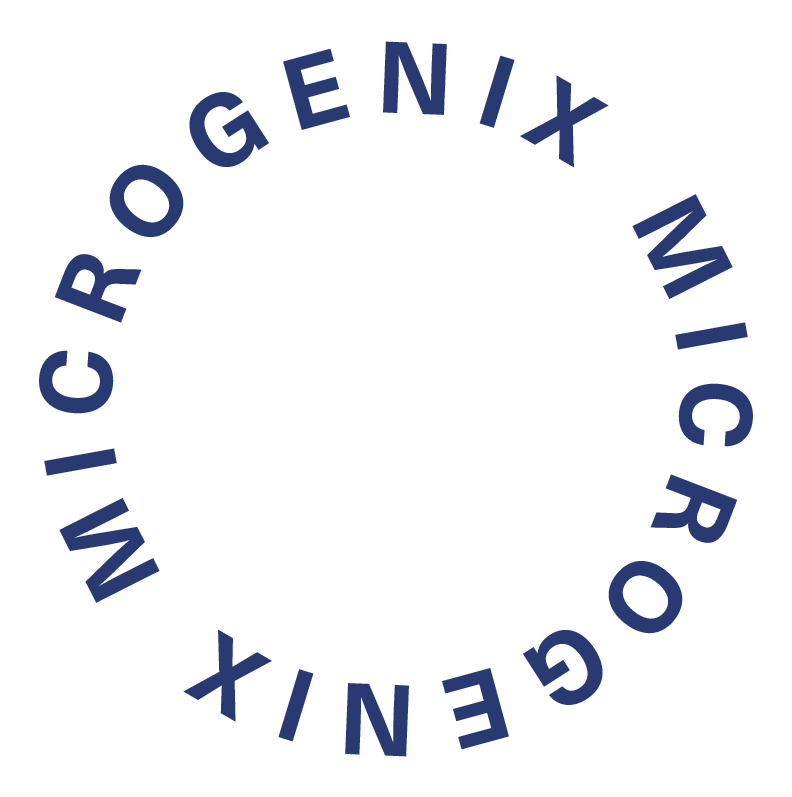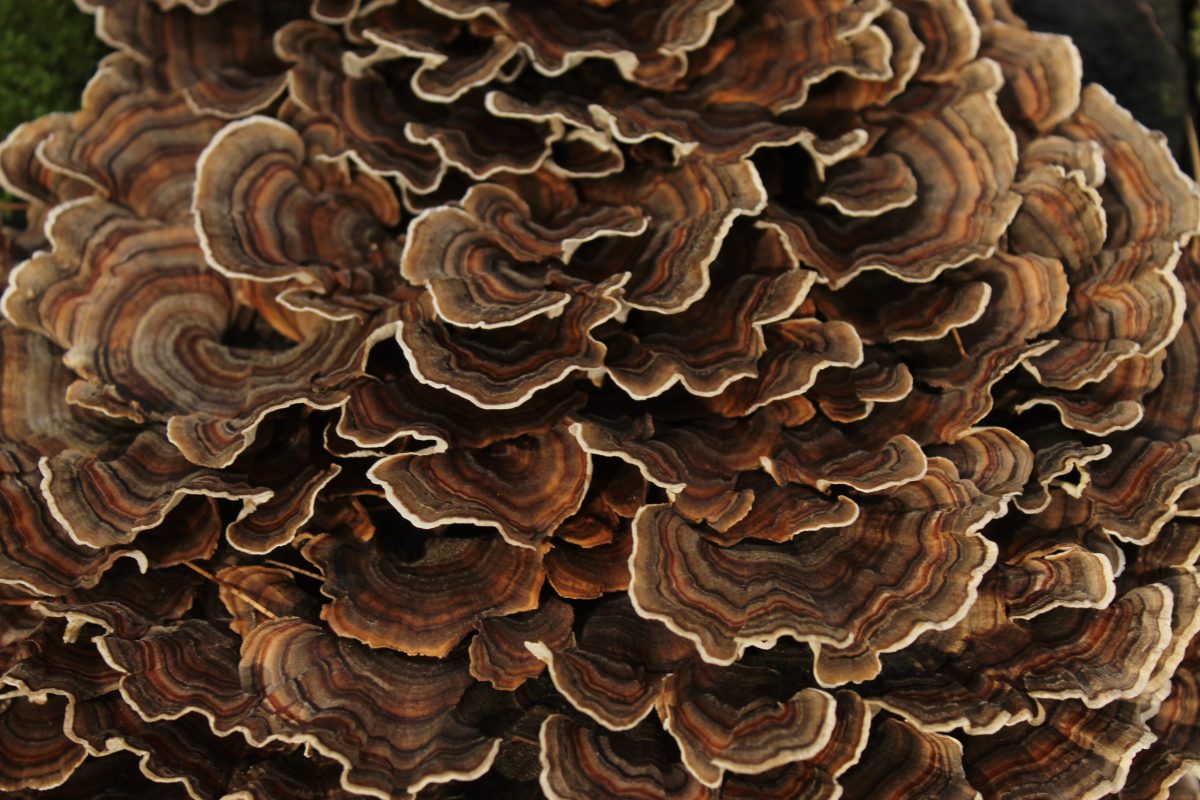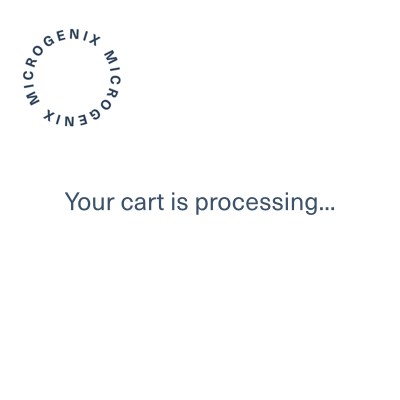Blog
Benefits of Turkey Tail
Trametes Versicolor, better known as the Turkey Tail mushroom, is a fungus full of lustrous colors that will surely add a unique vibrancy to the mind and body when consumed.
The chewy, tough texture of Turkey Tail makes it a species not suited for whole consumption, but in powdered form, it is one of the most sought after medicinal mushrooms around the world. Boosting the immune system, supporting the gut, and fending off inflammation are just some of the benefits relating to the Turkey Tail mushroom; a well-studied fungus that proves its abilities through extensive research outcomes.
Although functional mushrooms such as Lion’s Mane, Reishi, Turkey Tail, etc. tend to possess similar health benefits as one another, they vary in compounds and medicinal properties which make each of them useful for different reasons. One unique property of the Turkey Tail mushroom is its notably positive impact on gut health.
Gut Health
As if digestive complications weren’t bad enough, poor gut health can lead to more debilitating issues such as low mood, insomnia, irritability, fatigue, brain fog, and skin issues. An imbalanced gut can sabotage the body’s ability to process and receive energy from the foods we eat, as well as inhibit its ability to clear out toxins. The lethargic fog ensued by poor gut health can cause motivation to decline, making it difficult to finish tasks or even get out of bed. A poor gut can result in a plethora of issues that we certainly don’t want getting in the way of our health and happiness.
Turkey Tail mushrooms are rich in prebiotic fibers, allowing good bacteria to grow in the gut. Prebiotics act as food for the gut, feeding the good bacteria and allowing it to then form short chain fatty acids – which play an important role in immune health, metabolism, disease prevention and more.
The polysaccharide compounds in Turkey Tail mushrooms such as beta-glucans, help to balance a gut microbiome, and can also be beneficial in the treatment of IBS. A study published in the International Journal of Medicinal Mushrooms found that the use of Turkey Tail extract improved gut microbiota diversity, increased beneficial bacteria in the gut such as Bifidobacterium and Faecalibacterium, and also displayed high antioxidant activity.
Anti-inflammatory and Disease Prevention
These polysaccharide compounds we speak of not only have a positive effect on gut health, but also carry immune-boosting and anti-inflammatory properties with it. Inflammation is believed to be at the root of all chronic health conditions, which is why prioritizing anti-inflammatory agents in a daily routine is worth far more than we once thought. Although inflammation is the body’s natural response to injury or virus, chronic inflammation has been linked to both sleep disorders and serious diseases such as heart disease and cancer. The compounds found in Turkey Tail mushrooms show significant anti-inflammatory and antioxidant properties, with one study showing that consuming Turkey Tail extract for six months caused inflammatory markers to decrease significantly in a group of Breast Cancer Survivors.
Phenolic Compounds
Phenolic compounds are highly beneficial for improving human health, and can aid wellness in many different areas. Another study recognized a massive total of 38 phenolic compounds in Turkey Tail mushrooms, emphasizing just how prevalent these anti-inflammatory/antioxidant properties really are.
Flavonoids are a type of phenolic compound that possess an array of medicinal benefits, including cognitive health. Flavonoids have been shown to improve cognitive performance in tasks relating to memory and focus, and may assist in protection of the brain cells.
Phenolic compounds play a vital role in the body’s defense responses, including anti-aging properties. As aging causes cellular damage over time, phenolic compounds can aid in the reduction of cellular damage – slowing the aging process. Phenolic compounds may also improve skin health, protecting against skin damage and lowering the chance of premature wrinkles.
Flavonoids may enhance longevity, promoting a healthy lifespan through the elimination of senescent cells. The prolonging of senescent cells can cause the immune system to deplete, as well as stem cell exhaustion, and chronic inflammation. The integration of flavonoids in a daily regimen can offer a range of health benefits that make your body and mind feel good, fostering a positive impact on the long-term.
Finally, Supplementation
The use of medicinal mushrooms on a recurring basis can improve one’s quality of health and wellbeing. Choosing a high-quality form of mushroom supplement is vital in ensuring you are able to reap all the benefits, in a safe and effective manner.
We have launched a variety of steam-extracted nootropics, including Turkey Tail, for those who are hoping to enhance their supplement routine with the help of nature-derived medicine.
Where health is wealth, knowledge is key.
Yours,
Olive
Sources:
Jayachandran M, Xiao J, Xu B. A Critical Review on Health Promoting Benefits of Edible Mushrooms through Gut Microbiota. Int J Mol Sci. 2017 Sep 8;18(9):1934. doi: 10.3390/ijms18091934. PMID: 28885559; PMCID: PMC5618583.
Tan J, McKenzie C, Potamitis M, Thorburn AN, Mackay CR, Macia L. The role of short-chain fatty acids in health and disease. Adv Immunol. 2014;121:91-119. doi: 10.1016/B978-0-12-800100-4.00003-9. PMID: 24388214.
Pallav K, Dowd SE, Villafuerte J, Yang X, Kabbani T, Hansen J, Dennis M, Leffler DA, Newburg DS, Kelly CP. Effects of polysaccharopeptide from Trametes versicolor and amoxicillin on the gut microbiome of healthy volunteers: a randomized clinical trial. Gut Microbes. 2014 Jul 1;5(4):458-67. doi: 10.4161/gmic.29558. Epub 2014 Jul 9. PMID: 25006989.
Carlson JL, Erickson JM, Lloyd BB, Slavin JL. Health Effects and Sources of Prebiotic Dietary Fiber. Curr Dev Nutr. 2018 Jan 29;2(3):nzy005. doi: 10.1093/cdn/nzy005. PMID: 30019028; PMCID: PMC6041804.
Macready AL, Kennedy OB, Ellis JA, Williams CM, Spencer JP, Butler LT. Flavonoids and cognitive function: a review of human randomized controlled trial studies and recommendations for future studies. Genes Nutr. 2009 Dec;4(4):227-42. doi: 10.1007/s12263-009-0135-4. Epub 2009 Aug 13. PMID: 19680703; PMCID: PMC2775887.
Fan X, Fan Z, Yang Z, Huang T, Tong Y, Yang D, Mao X, Yang M. Flavonoids-Natural Gifts to Promote Health and Longevity. Int J Mol Sci. 2022 Feb 16;23(4):2176. doi: 10.3390/ijms23042176. PMID: 35216290; PMCID: PMC8879655.




